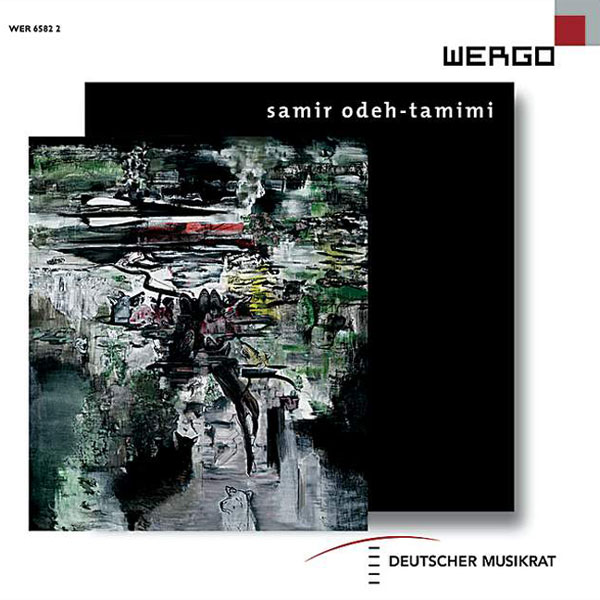Samir Odeh-Tamimi: Madjnun / Jabsurr / Ahinnu II / Shira Shir / Philaki / Garten der Erkenntnis / Gdadroja
Jeremias Schwarzer, WDR Rundfunkchor Köln, Rupert Huber, Dirk Wietheger, Ulrich Löffler, Ensemble Musikfabrik, Kasper de Roo, Romain Bischoff, Rundfunk-Sinfonieorchester Berlin, Jonathan Stockhammer, Neue Vocalsolisten Stuttgart, Andrew Digby, Thomas Wagner, Jennifer van der Hart, Keren Motseri, Gudrun Berghofer, Radio Kamerfilharmonie Hilversum, Peter Eötvös
● 2011
Political music is often music of grief, commemoration, or warning. It recalls the numberless victims of wars, massacres, genocides. It stands athwart the sufferings inflicted on man by man. It struggles with artistic means against suppression and injustice. Works of this sort stand as musical monuments against forgetting.
Odeh-Tamimi’s music frequently deals with the problems, conflicts, and circumstances of the Middle East. The titles and texts of his works point in that direction. But it is not the political will alone that causes him to write the music he writes:
“Being political is actually a concept that I came to know in Germany […]. I’m a Palestinian who was born and grew up in Israel […].Even though I live in Germany, it doesn’t give me any peace. I think of it all the time, of the events, no matter what happens there. Obviously it has left a mark on my music. But a work also gives rise to a work of art. Of course I respond to the tragic songs of the exterminated Jewish people. But still I try to put the message I want to convey into actual music. I have the urge to create truly high art”. (Samir Odeh-Tamimi)
production by Westdeutscher Rundfunkr (“Madjnun II“), co-production with Deutschlandradio Kultur (“Jabsurr“, “Ahinnu II“, “Philaki“), production by Deutschlandradio Kultur (“Shira Shir“), production by Südwestrundfunk (“Gdadroja“)
